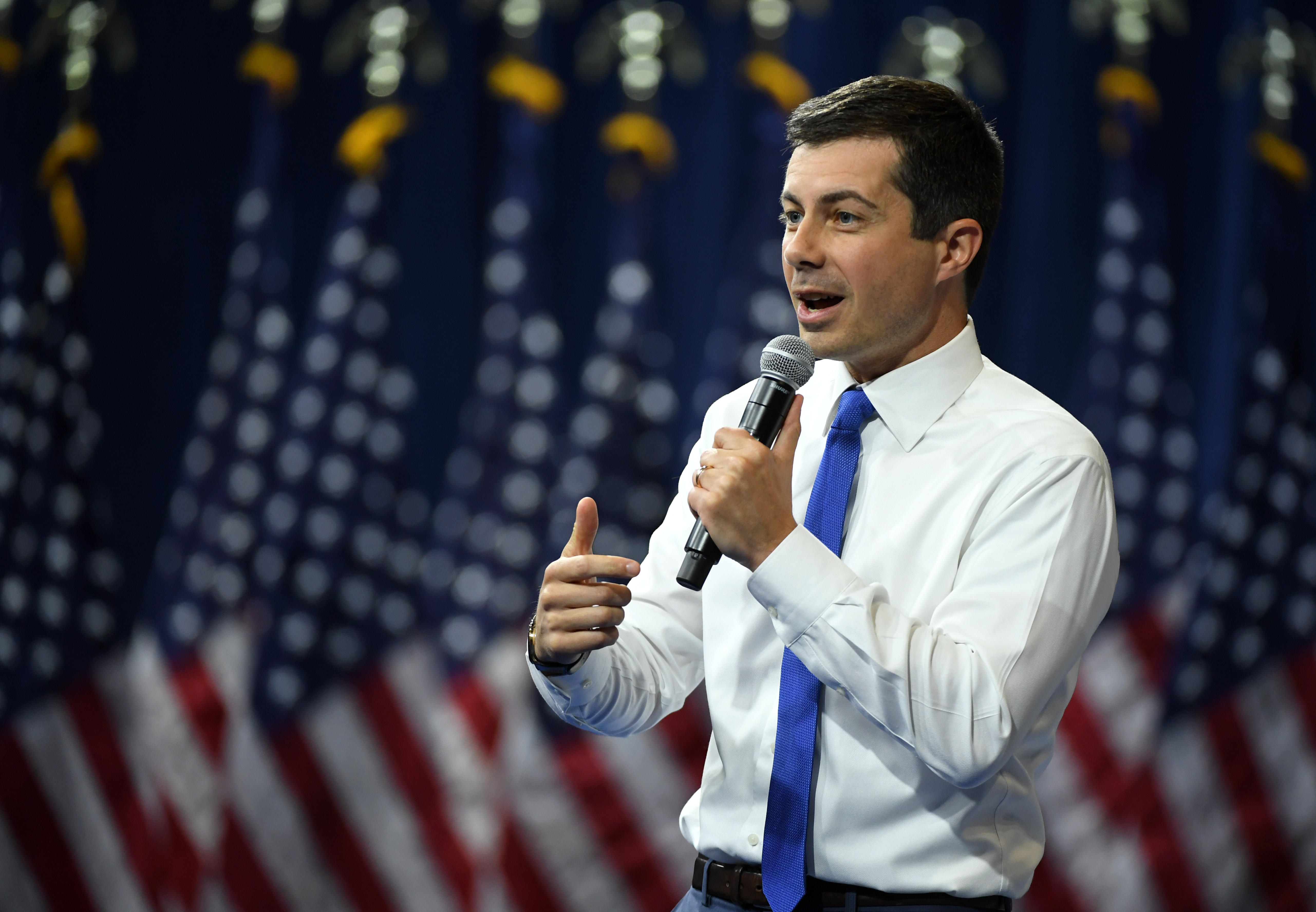Why Even Straight People Should Be Watching the LGBTQ Presidential Forum

Credit to Author: Michelle Garcia| Date: Fri, 11 Oct 2019 13:22:50 +0000
The top candidates seeking the Democratic nomination for president are courting the LGBTQ vote—and the vote of their allies—on Thursday during an hours-long town hall on CNN. Senators Kamala Harris, Elizabeth Warren, Cory Booker, and Amy Klobuchar, as well as Former Vice President Joe Biden, Mayor Pete Buttigieg, former Rep. Beto O'Rourke, former Secretary Julian Castro, and businessman Tom Steyer are expected to appear. Sen. Bernie Sanders, still recovering in Vermont from a heart attack, spoke to CNN's Sanjay Gupta before the event began.
Many (straight people) might assume that the big issues for LGBTQ Americans have mostly been solved, or at the least, aren’t pressing enough to warrant a national forum. But, as the Human Rights Campaign has pointed out, there are at least 11 million LGBTQ adults in the U.S., so this debate platform could be a game-changer this election cycle. And there is actually a full slate of pressing social issues that still plague the LGBTQ community and are begging to be addressed.
Even with same-sex marriage legalized, the U.S. military allowing lesbian, gay, and bisexual service members to serve openly, and consistently growing transgender visibility, there are plenty of LGBTQ people who live without a certain level of rights and access that others take for granted. For instance, Congress has failed for more than four decades to pass any basic anti-discrimination law for LGBTQ people leading to the Supreme Court hearing three potentially landmark queer and transgender cases about job discrimination earlier this week. Meanwhile, the Trump administration and its legion of right-wing judges, lobbyists, and supporters have ignited a full-on backlash to stop LGBTQ progress, including repealing policies that were precariously established to begin with as Congress continued to fail to act (like plans to allow doctors to discriminate against transgender people, repealing transgender service in the military, and no longer defending LGBTQ people in federal discrimination lawsuits, to just name a few).
Overall, the reality for LGBTQ Americans remains bleak: Queer youth homelessness has not gone away. Forced conversion therapy has not gone away. The inadequate patchwork of laws to ensure same-sex couples and LGBTQ parents can securely raise their children without incurring legal hurdles is only becoming more precarious. HIV is still a scourge among gay and bisexual men, especially those of color.
This is all happening, though, during two significant, intertwined demographic shifts that the Human Rights Campaign—the nation's biggest LGBTQ rights organization—is aiming to take advantage of, with this election cycle. More Americans identify as LGBTQ now than ever in history: a small but meaningful 4.5 percent of the population, according to a 2018 Gallup poll. And all of those people coming out have had a significant political impact on the people in their lives. HRC says a significant number of Democratic voters who are not queer-identified also want to know that the candidates they support will uphold the rights of their friends, coworkers, neighbors and family members who are LGBTQ. This means that candidates wanting to signal to voters that they know how to properly go beyond platitudes could stand to make a good showing at this second candidate forum on LGBTQ issues during this election cycle (the first was a joint effort between The Advocate magazine and GLAAD in September).
Not so long ago, you might have expected a bunch of these candidates to offer nothing but vague statements about ally-ship and equality, but the footprint of the Equality Vote, as the HRC is calling this group of LGBTQ voters and others who care about their rights, belies deeper political understanding on these issues. It’ll be an opportunity for establishment candidates like Joe Biden to show that he has a grasp of the more granular LGBTQ issues beyond marriage equality, of which he became a (perhaps inadvertent) trailblazer under the Obama administration in 2012. Former HUD Secretary Julian Castro has rarely missed a chance to mention marginalized LGBTQ people, particularly trans women of color; this could be a moment for him to further express his understanding. Pete Buttigieg, the first openly gay major Democratic candidate for president, stands to share both personal experiences as he did at the end of the debate in September. Both he and Elizabeth Warren will likely also further define the LGBTQ platform he released Thursday before the event.
And voters will be listening. A wave of politically active Gen Z-ers will be entering the national electorate in 2020—and they are the most queer-identified generation in recent history. Following them are Millennials who also carry a significant proportion of LGBTQ people and have helped define elections since President Obama won his presidency in 2008.
Sign up for our newsletter to get the best of VICE delivered to your inbox daily.
This article originally appeared on VICE US.